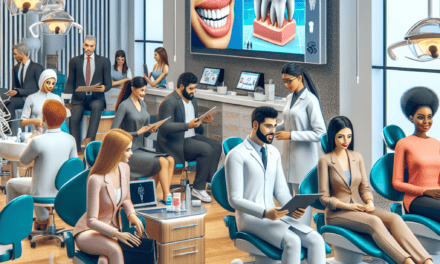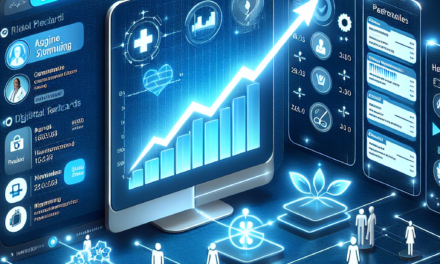Revolutionary Advances Shaping Self-Confidence and Perception
In an era defined by rapid technological advancements and evolving social dynamics, the concepts of self-confidence and perception are undergoing significant transformations. These changes are influenced by various factors, including social media, mental health awareness, artificial intelligence, and innovative therapeutic practices. This article delves into five key areas that are revolutionizing how individuals perceive themselves and their confidence levels, providing insights into the implications of these advances.
The Impact of Social Media on Self-Perception
Social media platforms have become ubiquitous in modern society, shaping how individuals view themselves and others. While these platforms can foster community and connection, they also present challenges that can undermine self-confidence.
- Curated Realities: Social media allows users to curate their lives, often presenting an idealized version of reality. This can lead to unhealthy comparisons, where individuals measure their worth against the seemingly perfect lives of others.
- Validation and Feedback: The quest for likes, shares, and comments can create a feedback loop that influences self-esteem. Positive reinforcement can boost confidence, while negative comments can have the opposite effect.
- Body Image Issues: Platforms like Instagram and TikTok often promote unrealistic beauty standards, leading to body dissatisfaction among users. Studies have shown that exposure to idealized images can increase anxiety and decrease self-esteem.
- Community Support: On the flip side, social media can also provide support networks for individuals struggling with self-esteem issues. Online communities can foster acceptance and encourage individuals to embrace their authentic selves.
- Digital Detox: Recognizing the negative impact of social media, many individuals are opting for digital detoxes, which can lead to improved self-perception and mental health.
Research indicates that the relationship between social media use and self-esteem is complex. A study published in the journal “Cyberpsychology, Behavior, and Social Networking” found that while social media can enhance self-esteem through social validation, it can also lead to feelings of inadequacy and anxiety when users engage in social comparison. The key lies in how individuals use these platforms and the content they consume.
Advancements in Mental Health Awareness
The growing awareness of mental health issues has transformed how society views self-confidence and perception. As stigma diminishes, more individuals are seeking help and understanding the importance of mental well-being.
- Therapeutic Approaches: Innovative therapeutic methods, such as cognitive-behavioral therapy (CBT) and mindfulness practices, have gained traction. These approaches help individuals reframe negative thoughts and build self-confidence.
- Education and Resources: Increased access to mental health resources, including online therapy and support groups, empowers individuals to address their self-esteem issues proactively.
- Workplace Initiatives: Many organizations are implementing mental health initiatives, recognizing that employee well-being directly impacts productivity and morale. Programs that promote self-care and mental health awareness contribute to a more confident workforce.
- Peer Support: The rise of peer support networks has provided individuals with safe spaces to share their experiences and challenges. This communal approach fosters a sense of belonging and enhances self-worth.
- Public Campaigns: Campaigns aimed at destigmatizing mental health issues, such as “Bell Let’s Talk,” have raised awareness and encouraged open discussions about self-esteem and mental health.
According to the World Health Organization, mental health is a state of well-being in which individuals realize their potential, can cope with the normal stresses of life, work productively, and contribute to their communities. As mental health awareness continues to grow, individuals are increasingly recognizing the importance of nurturing their self-confidence as part of their overall well-being.
The Role of Artificial Intelligence in Self-Perception
Artificial intelligence (AI) is revolutionizing various aspects of life, including how individuals perceive themselves. From personalized recommendations to virtual reality experiences, AI is shaping self-confidence in unprecedented ways.
- Personalized Feedback: AI-driven applications can provide personalized feedback on various aspects of life, from fitness to fashion. This tailored approach can help individuals make informed decisions that enhance their self-image.
- Virtual Reality Therapy: Virtual reality (VR) therapy, powered by AI, allows individuals to confront their fears and insecurities in a controlled environment. This innovative approach can significantly boost self-confidence.
- AI in Fashion and Beauty: AI tools that analyze body types and skin tones can help individuals find clothing and makeup that enhance their appearance, leading to improved self-esteem.
- Social Media Algorithms: AI algorithms on social media platforms curate content that can either positively or negatively impact self-perception. Understanding these algorithms can empower users to take control of their online experiences.
- AI Companions: AI-driven virtual companions can provide emotional support and encouragement, helping individuals build confidence in their social interactions.
For instance, a study published in the journal “Computers in Human Behavior” found that individuals who engaged with AI-driven virtual companions reported increased feelings of self-worth and reduced anxiety. As AI continues to evolve, its potential to shape self-perception and confidence will likely expand, offering new avenues for personal growth.
Innovative Therapeutic Practices
Therapeutic practices are evolving to meet the needs of individuals seeking to enhance their self-confidence and perception. From art therapy to equine-assisted therapy, these innovative approaches are gaining recognition for their effectiveness.
- Art Therapy: Engaging in creative expression through art therapy allows individuals to explore their emotions and build self-esteem. This non-verbal form of therapy can be particularly beneficial for those who struggle to articulate their feelings.
- Equine-Assisted Therapy: Interacting with horses in a therapeutic setting has been shown to improve self-confidence and emotional regulation. The bond formed with these animals can foster a sense of trust and self-worth.
- Adventure Therapy: Adventure therapy combines outdoor activities with therapeutic practices, encouraging individuals to step out of their comfort zones. This approach can lead to increased self-efficacy and confidence.
- Mindfulness and Meditation: Mindfulness practices help individuals cultivate self-awareness and acceptance, leading to improved self-perception. Regular meditation can reduce anxiety and enhance overall well-being.
- Group Therapy: Group therapy provides a supportive environment where individuals can share their experiences and challenges. This communal approach fosters connection and reinforces self-worth.
Research published in the “Journal of Creativity in Mental Health” highlights the positive impact of art therapy on self-esteem among individuals with mental health challenges. By exploring innovative therapeutic practices, individuals can find effective ways to enhance their self-confidence and reshape their perceptions.
The Influence of Education and Personal Development
Education and personal development play crucial roles in shaping self-confidence and perception. As individuals pursue knowledge and skills, they often experience growth in their self-esteem and self-worth.
- Skill Development: Engaging in continuous learning and skill development can empower individuals, leading to increased confidence in their abilities. Whether through formal education or self-directed learning, acquiring new skills enhances self-perception.
- Public Speaking and Communication: Programs that focus on public speaking and communication skills can significantly boost self-confidence. Mastering these skills allows individuals to express themselves more effectively.
- Mentorship Programs: Mentorship provides individuals with guidance and support, fostering personal growth and confidence. A mentor can help navigate challenges and encourage self-discovery.
- Goal Setting: Setting and achieving personal goals can lead to a sense of accomplishment and increased self-esteem. The process of working towards goals reinforces self-belief.
- Workshops and Seminars: Participating in workshops and seminars focused on personal development can provide valuable insights and tools for enhancing self-confidence.
A study published in the “Journal of Educational Psychology” found that students who engaged in personal development programs reported higher levels of self-esteem and academic achievement. By prioritizing education and personal growth, individuals can cultivate a positive self-image and enhance their overall perception of themselves.
Conclusion
The revolutionary advances shaping self-confidence and perception are multifaceted, encompassing social media dynamics, mental health awareness, artificial intelligence, innovative therapeutic practices, and personal development. As individuals navigate these changes, it is essential to recognize the impact of their environment and the tools available to them.
By understanding the complexities of self-perception and actively engaging with these advances, individuals can foster a healthier self-image and build lasting confidence. The journey towards self-acceptance and empowerment is ongoing, but with the right resources and support, it is achievable for everyone.
In summary, the interplay between technology, mental health, and personal development is reshaping how we view ourselves. As we continue to explore these revolutionary advances, it is crucial to prioritize self-care, seek support, and embrace the journey of self-discovery.





